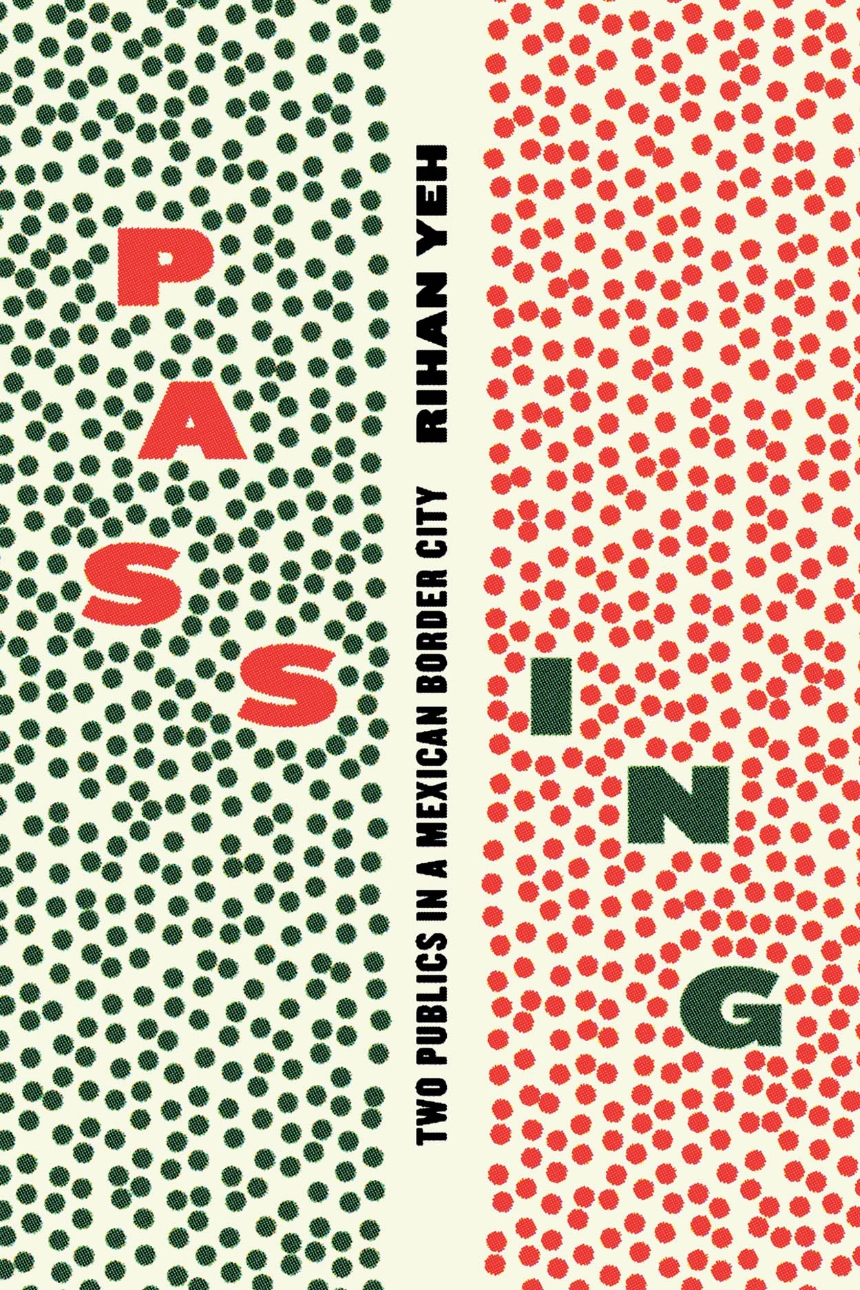Passing
Two Publics in a Mexican Border City
Tijuana is the largest of Mexico’s northern border cities, and although it has struggled during the United States’ dramatic escalation of border enforcement, it nonetheless remains deeply connected with California by one of the largest, busiest international ports of entry in the world. In Passing, Rihan Yeh probes the border’s role in shaping Mexican senses of self and collectivity. Drawing on extensive fieldwork, Yeh examines a range of ethnographic evidence: public demonstrations, internet forums, popular music, dinner table discussions, police encounters, workplace banter, intensely personal interviews, and more. Through these everyday exchanges, she shows how the promise of passage and the threat of prohibition shape Tijuana’s communal sense of “we” and throw into relief long-standing divisions of class and citizenship in Mexico.
Out of the nitty-gritty of quotidian talk and interaction in Tijuana, Yeh captures the dynamics of desire and denial that permeate public spheres in our age of transnational crossings and fortified borders. Original and accessible, Passing is a timely work in light of current fierce debates over immigration, Latin American citizenship, and the US-Mexico border.
Out of the nitty-gritty of quotidian talk and interaction in Tijuana, Yeh captures the dynamics of desire and denial that permeate public spheres in our age of transnational crossings and fortified borders. Original and accessible, Passing is a timely work in light of current fierce debates over immigration, Latin American citizenship, and the US-Mexico border.
304 pages | 6 halftones, 2 tables | 6 x 9 | © 2017
Anthropology: Cultural and Social Anthropology
Sociology: Race, Ethnic, and Minority Relations
Reviews
Table of Contents
Methods/Debts
Note on Translations, Transcriptions, and Pseudonyms
Introduction
I: Passage/Prohibition
Overview
1: The Line
2: Inés’s “I”
The Assembly Plant
3: The Place Where Anything Can Happen
4: “They Say” in the Country Club
II: Prohibition/Passage
Overview
5: Clase Media and Pueblo before the Law
The Visa Interview
6: Passes
7: The Street Is a River
8: The Stone
Conclusion
Acknowledgments
Appendix: Interview Excerpts from Chapter 2
References
Index
Note on Translations, Transcriptions, and Pseudonyms
Introduction
I: Passage/Prohibition
Overview
1: The Line
2: Inés’s “I”
The Assembly Plant
3: The Place Where Anything Can Happen
4: “They Say” in the Country Club
II: Prohibition/Passage
Overview
5: Clase Media and Pueblo before the Law
The Visa Interview
6: Passes
7: The Street Is a River
8: The Stone
Conclusion
Acknowledgments
Appendix: Interview Excerpts from Chapter 2
References
Index
Awards
Society for Cultural Anthropology: Gregory Bateson Book Prize
Honorable Mention
